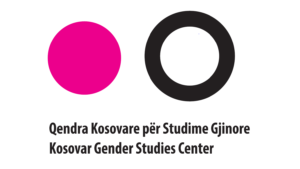Gjakova is one of the few municipalities in Kosovo to have been governed by three different parties in the 17 year period after the war, with local governance having been left in the hands of the Democratic League of Kosovo (LDK), the Alliance for the Future of Kosovo (AAK) and the New Kosovo Alliance (AKR).
Gjakova is also the first municipality in Kosovo to elect a woman mayor, with a majority of residents voting for Mimoza Kusari-Lila in 2013. Then a member of Behgjet Pacolli’s AKR, Kusari-Lila’s victory dethroned AAK in the municipality.
In this year’s local elections, incumbent mayor Kusari-Lila, running as a member of Alternativa this time around, managed to secure second place, behind AAK’s Ardian Gjini. In her third face-off against AAK, Kusari-Lila achieved 32.1 percent of the vote, whereas Gjini won 39.9 percent, a result which means that they will face each other in the Nov. 19 runoff.
Having traditionally faced AAK, Kusari-Lila has focused her criticism on the party, highlighting that Gjakova must not take backward steps towards 2013. Throughout her campaign she has accused AAK of manipulating votes in the 2009 and 2013 election processes, and has gone on to make similar accusations of Gjini regarding the first round of local elections held on Oct. 22.
Kusari-Lila has also been on the receiving end of accusations and criticism. Gjini holds her responsible for bad governance in Gjakova and for demolishing municipal property and then accusing AAK.
He has also labelled her as a xenophobe, saying that she has further divided the city from its surrounding villages. Kusari-Lila filed two lawsuits for slander against Gjini for these remarks. In response, Gjini stated that Kusari-Lila did this as part of her attempts to retain power in Gjakova.
In her mission to come back from behind following the Oct. 22 results, Kusari-Lila has signed a coalition agreement with Vetevendosje and LDK, with both of these parties having received a total of over 9,000 votes. Gjini has formed a coalition with PDK and the Albanian Demochristian Party of Kosovo, with these two parties also having a total of over 9,000 votes.
Although both candidates have provided insubstantial governance programs for Gjakova, K2.0 presents a summary of their promises, as well as the problems that face the next mayor of the municipality.
Economic development
Kusari-Lila has said that the municipality of Gjakova is in a financial crisis because of a 6 million euro debt inherited from the previous AAK government, led by Pal Lekaj. Despite this, Kusari-Lila claims that she has managed to pay off 4 million euros from this debt, and, through good management, create suitable conditions for economic development in the city.
She believes that she has positively influenced employment levels through a series of projects, claiming that she created 800 new jobs through a grant scheme, the functionalization of the milk factory in Reke, and by organizing the employment fair, which was supported by GIZ.
As part of her successes throughout the last four years, she has mentioned steps that were taken for vocational training, information sharing between employers and employees, the establishment of the Center for Innovation, as well as other decisions which have influenced the creation of new jobs. Moreover, during a televised debate, Kusari-Lila stated that the municipality has employed 900 people in the past four years.
She promises to further develop the grant scheme in her next mandate, claiming that the provision of grants influences the creation of new jobs. Kusari-Lila also promises to seek the creation of common work spaces through these grants.
Kusari-Lila stated that she will attract foreign investors by creating an economic zone, so as to further develop Gjakova’s economy. GAP Institute has analyzed promises that were made by mayors in all municipalities in the previous mandate and found that Kusari-Lila fulfilled most of her promises. She has used this argument throughout her campaign.
On the other hand, Gjini has spoken generally about economic development in Gjakova, saying that all sectors must be interconnected, so as to make economic development inevitable. He said that every project will be focused on economic development, adding that it is important to use the budget for “development, not expenditure.”
Gjini states that he has identified 27 businesses with roots in Gjakova that work in other countries, and have an average capital of 10 million euros, adding that he is negotiating with them with the objective of creating conditions for them to invest in the municipality. According to Gjini, this will translate into new jobs.
Throughout the campaign, Gjini visited and promised to support small and medium sized businesses in Gjakova, but failed to provide further details about this.
Gjini also promised to support the youth, with the objective of encouraging them to innovate. He has pledged scholarships for students of under-attended courses, adding that he wants to encourage a return to Gjakova for work after finishing their studies abroad.
Capital investments
Kusari-Lila has pointed to capital investments that were made in Gjakova during the last mandate, saying that it is one of the municipalities that has managed to attract the highest rate of investments from foreign donors. She highlighted three sectors in which investments were made and projects are ongoing or complete.
The regulation of the water supply network is one of the projects of which she is most proud. She has stated that 80 percent of the network is now regulated and promises to complete it in 2018. Kusari-Lila added that after solving this issue, she guarantees that Gjakova’s residents will not face problems of this nature at least for the next 30 years.
She promised to invest in the construction of a sewage plant in the inner parts of the city. According to Kusari-Lila, the funding for this project has been secured in cooperation with the Kosovo Government and foreign donors. She has promised to complete this project within the next mandate.
The construction of the central heating system, which will function based solely on biomass and have a cost of 14 million euros, is another project which will be implemented in Gjakova. According to Kusari-Lila, funding for this has been secured. She stated that it will be one of the most modern plants, adding that no such plant exists in the region.
She also promised to finish road construction in the city’s main areas, as well as to finish the construction of the Center for Disabled People and the New Family Medicine Center.
On the other hand, Gjini promised infrastructure investments will not be lacking in his potential mandate, since he claims to have the indisputable support of Prime Minister Ramush Haradinaj. Gjini has said that, in cooperation with the Kosovo Government, he will make investments in infrastructure the likes of which have not been made in the last 10 years. The prime minister himself promised the Gjakova electorate that he will give his utmost support to Gjini.
At a recent election rally, Haradinaj promised to start the construction of a four-lane road that connects Klina to Gjakova. According to the prime minister, this project will be finished within the next year.
Moreover, Gjini promised to invest in the sewage network, the water supply network and in road reconstruction. He also promised to invest in the City Park by building a bookshop, cafes and other shops — such as a flower shop which will also be responsible for planting flowers around the park.
He has also promised to invest in the neighborhood of Cabrat by building stairs that provide access to the main road, as well as by building other roads in this neighborhood. Gjini also promised to invest in education and healthcare infrastructure, adding that these sectors have the most issues.
On Sunday, Gjakova’s citizens will have the opportunity to choose between two candidates. Whoever is elected, they will face a series of challenges which require solutions. According to a report published by the Friedrich Ebert Stiftung foundation, some of the challenges that face the new mayor are: the sewage network, the water supply network, damaged roads, Gjakova airport’s lack of functionality, and the lack of public transport, waste management and financial management.K
Illustration K2.0.
 This publication has been produced with the assistance of the European Union, as part of a project implemented by Kosovo 2.0 and supported by the Kosovar Gender Studies Centre and Dora Dores. The contents of this publication are the sole responsibility of Kosovo 2.0 and can in no way be taken to reflect the views of the European Union, Kosovar Gender Studies Center and Dora Dores.
This publication has been produced with the assistance of the European Union, as part of a project implemented by Kosovo 2.0 and supported by the Kosovar Gender Studies Centre and Dora Dores. The contents of this publication are the sole responsibility of Kosovo 2.0 and can in no way be taken to reflect the views of the European Union, Kosovar Gender Studies Center and Dora Dores.

 This publication has been produced with the assistance of the European Union, as part of a project implemented by Kosovo 2.0 and supported by
This publication has been produced with the assistance of the European Union, as part of a project implemented by Kosovo 2.0 and supported by